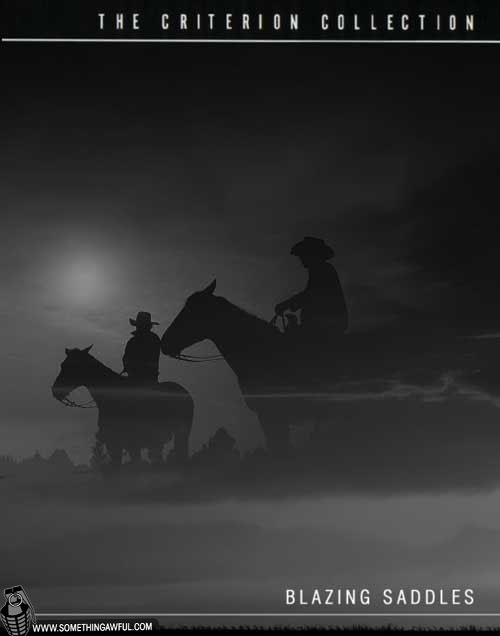… and pu'd the gowans fine:
-
If you feel like working up some outrage at the end of the year,
Shikha
Dalmia will do the trick; she outlines how our country
will be pummelled by the nightmare that is ObamaCare: "It is one huge
entrapment scheme that will turn patients and providers into criminals."
ObamaCare is pushing America down the road to serfdom, but neither its opponents nor advocates seem to have noticed. It is time for civil libertarians in both parties to wake up and strangle it before it strangles what’s left of American freedoms.
Other than that, though, it's fi—oh, wait a minute, there's plenty of other things wrong with it too. -
But that's the result of a new government program.
How are the old ones doing? Well, according to Ricardo
Alonso-Zaldivar
of the Associated Press, if you're approaching retirement:
[An average-wage, two-earner couple] retiring in 2011 will have paid $614,000 in Social Security taxes, and can expect to collect $555,000 in benefits. They will have paid about 10 percent more into the system than they're likely to get back.
It's a good thing the Federal Government grabbed all that money from those folks. Otherwise they might have done something foolish with it, like invest.But it's the opposite with Medicare:
Upon retiring in 2011, they would have paid $114,000 in Medicare payroll taxes during their careers.
Ah. So while they're getting screwed on Social Security, they're screwing current taxpayers on Medicare. Good plan! (Via the unamused Power Line.)But they can expect to receive medical services — from prescriptions to hospital care — worth $355,000, or about three times what they put in.
-
If you're looking for New Year's Resolutions, James
Lileks has shared his. Example:
I resolve to stop picking up things the demonstrators sell in grocery stores just to make them feel like they did a good job, then putting them back when I'm in another aisle. I will put them back where they really belong.
Yeah. Sometimes I get the uncomfortable feeling that Lileks is spying on me. Also, Scott Adams. -
Another annual tradition: predictions for the upcoming year.
Relatively few pundits will review their predictions for this
year, but Lore Sjöberg bravely tackles the
task. Example:
I predicted: “There will be no oil spills this year. If there is one, it will be minor. If there’s a major spill after all, it’ll be off India or Japan or something, not near the United States. If, for some reason, there’s a major spill in U.S. waters, Kevin Costner will have no ideas about how to contain it. And if Costner does come up with some sort of oil-cleanup plan or device, he will not do so two weeks after getting a sex change.”
What happened: Kevin Costner is still a man. I nailed this one.
![[Amazon Link]](/ps/asin_imgs/0452296196.jpg)
![[3.5
stars]](/ps/images/35stars.gif)
![[IMDb Link]](https://ia.media-imdb.com/images/G/01/imdb/plugins/rating/images/imdb_46x22.png)
![[Amazon Link]](/ps/asin_imgs/B0036TGSIK.jpg)
![[Amazon Link]](/ps/asin_imgs/0743466640.jpg)
![[3.0
stars]](/ps/images/30stars.gif)
![[Amazon Link]](/ps/asin_imgs/0780020723.jpg)
![[Amazon Link]](/ps/asin_imgs/B003YOZNAG.jpg)
![[Amazon Link]](/ps/asin_imgs/0425207609.jpg)
![[2.5
stars]](/ps/images/25stars.gif)
![[Amazon Link]](/ps/asin_imgs/B01CFFVLVO.jpg)
![[Excellent!]](/ps/images/excellent.jpg) The University Near Here
The University Near Here ![[4.5
stars]](/ps/images/45stars.gif)
![[Amazon Link]](/ps/asin_imgs/B0041T52S6.jpg)
![[Amazon Link]](/ps/asin_imgs/1416532420.jpg)
 The
The ![[4.0
stars]](/ps/images/40stars.gif)
![[Amazon Link]](/ps/asin_imgs/B001NIKAI0.jpg)
![[Amazon Link]](/ps/asin_imgs/B00IP1C90A.jpg)
![[Amazon Link]](/ps/asin_imgs/0515143820.jpg)
![[Amazon Link]](/ps/asin_imgs/B002SF9YNO.jpg)
![[Amazon Link]](/ps/asin_imgs/B00406UJZQ.jpg)
![[Amazon Link]](/ps/asin_imgs/0765319608.jpg)
![[The Blogger and His Dog]](/ps/images/me_with_barney.jpg)



